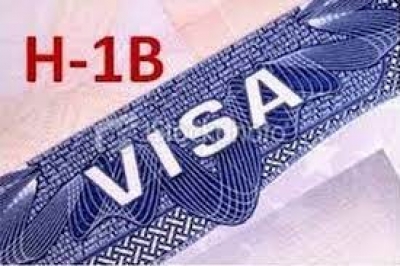New Delhi, Sep 20 (IANS): The United States’ latest move to hike H-1B non-immigrant visa fees to an unprecedented USD 100,000 could put the American dream out of reach for thousands of Indian students and professionals.
The steep increase, announced by President Donald Trump under the ‘Restriction on Entry of Certain Nonimmigrant Workers’ order, is expected to drastically cut down on low- and mid-level H-1B hiring. Approvals are likely to become concentrated on senior, high-value roles, forcing companies and workers to explore alternative visa pathways or restructure hiring models.
Who Gets Hit the Hardest
-
Entry and mid-career workers will feel the biggest pinch, with annual salaries typically ranging between USD 65,000–122,000.
-
Top executives and senior specialists may still find employers willing to absorb or share the higher costs.
-
The new policy threatens to choke off the talent pipeline that once allowed figures like Satya Nadella and Sundar Pichai to rise through the ranks.
Indian Talent at Risk
Indians account for a dominant 70% of H-1B approvals, with China trailing far behind. Currently, about 442,000 H-1B visa holders are working in the US, mostly in computer science, software engineering, AI, machine learning, and related IT fields. Large US tech corporations and Indian IT services firms remain the biggest sponsors.
A Door for the Wealthy
On the same day, Trump introduced the so-called “Gold Card” visa programme, offering expedited immigration to foreigners who make significant financial contributions.
-
USD 1 million donations qualify individuals.
-
USD 2 million donations qualify if paid by a corporation or other entity.
This new route underlines a sharp contrast: while skilled workers face steep entry barriers, the wealthy may bypass them entirely with financial clout.
Labour Market Pressures
The policy cites a Federal Reserve Bank of New York study, highlighting troubling unemployment and underemployment trends among US graduates:
-
Computer science: 6.1% unemployment, 16.5% underemployment.
-
Computer engineering: 7.5% unemployment, 17% underemployment.
-
Higher unemployment also affects fields like anthropology (9.4%) and physics (7.8%).
Generative AI adoption, mass layoffs, and hiring recalibration are already reshaping the US tech labour market. The visa fee hike adds geographic rebalancing to this turbulent mix.
Global Repercussions
For decades, US firms have cut costs by outsourcing manufacturing and support roles abroad—especially to Asia—while retaining higher-value functions like design, management, and advanced engineering at home. This boosted profitability and consumer affordability but came at the cost of domestic jobs.
The latest move risks disrupting that balance further, reshaping sourcing strategies in tech, higher education, and professional services worldwide.










